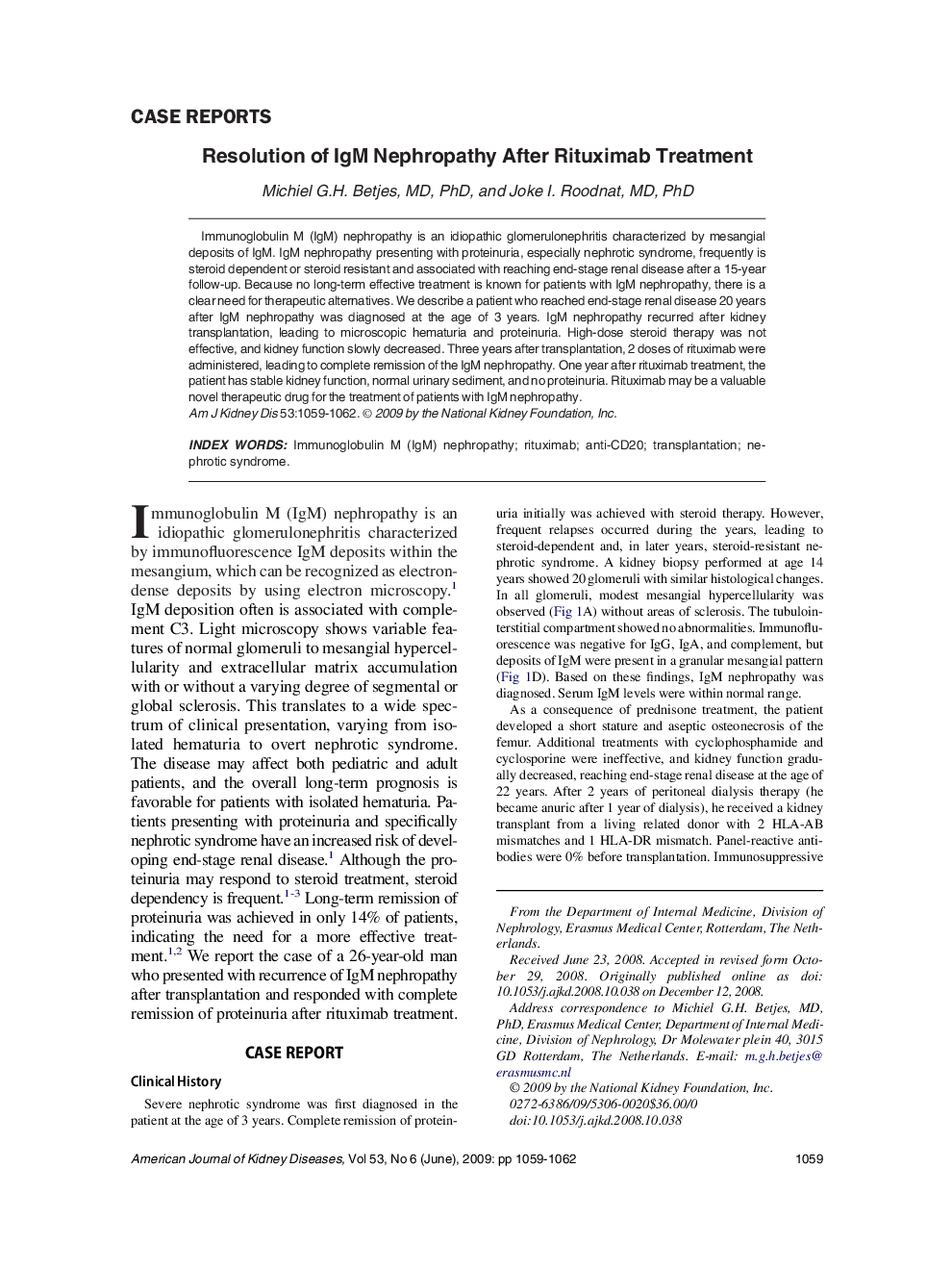| Article ID | Journal | Published Year | Pages | File Type |
|---|---|---|---|---|
| 3850271 | American Journal of Kidney Diseases | 2009 | 4 Pages |
Abstract
Immunoglobulin M (IgM) nephropathy is an idiopathic glomerulonephritis characterized by mesangial deposits of IgM. IgM nephropathy presenting with proteinuria, especially nephrotic syndrome, frequently is steroid dependent or steroid resistant and associated with reaching end-stage renal disease after a 15-year follow-up. Because no long-term effective treatment is known for patients with IgM nephropathy, there is a clear need for therapeutic alternatives. We describe a patient who reached end-stage renal disease 20 years after IgM nephropathy was diagnosed at the age of 3 years. IgM nephropathy recurred after kidney transplantation, leading to microscopic hematuria and proteinuria. High-dose steroid therapy was not effective, and kidney function slowly decreased. Three years after transplantation, 2 doses of rituximab were administered, leading to complete remission of the IgM nephropathy. One year after rituximab treatment, the patient has stable kidney function, normal urinary sediment, and no proteinuria. Rituximab may be a valuable novel therapeutic drug for the treatment of patients with IgM nephropathy.
Related Topics
Health Sciences
Medicine and Dentistry
Nephrology
Authors
Michiel G.H. MD, PhD, Joke I. MD, PhD,
